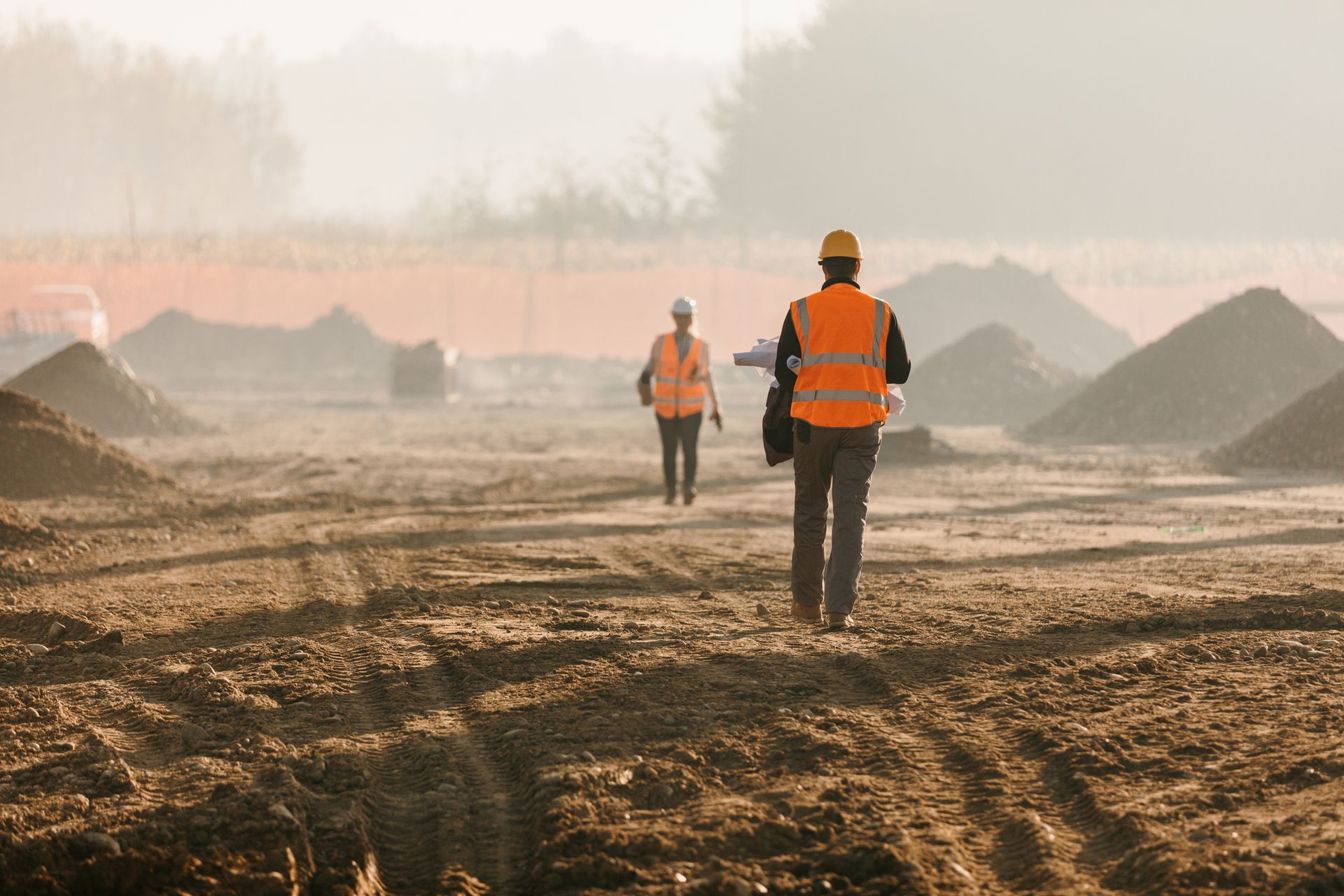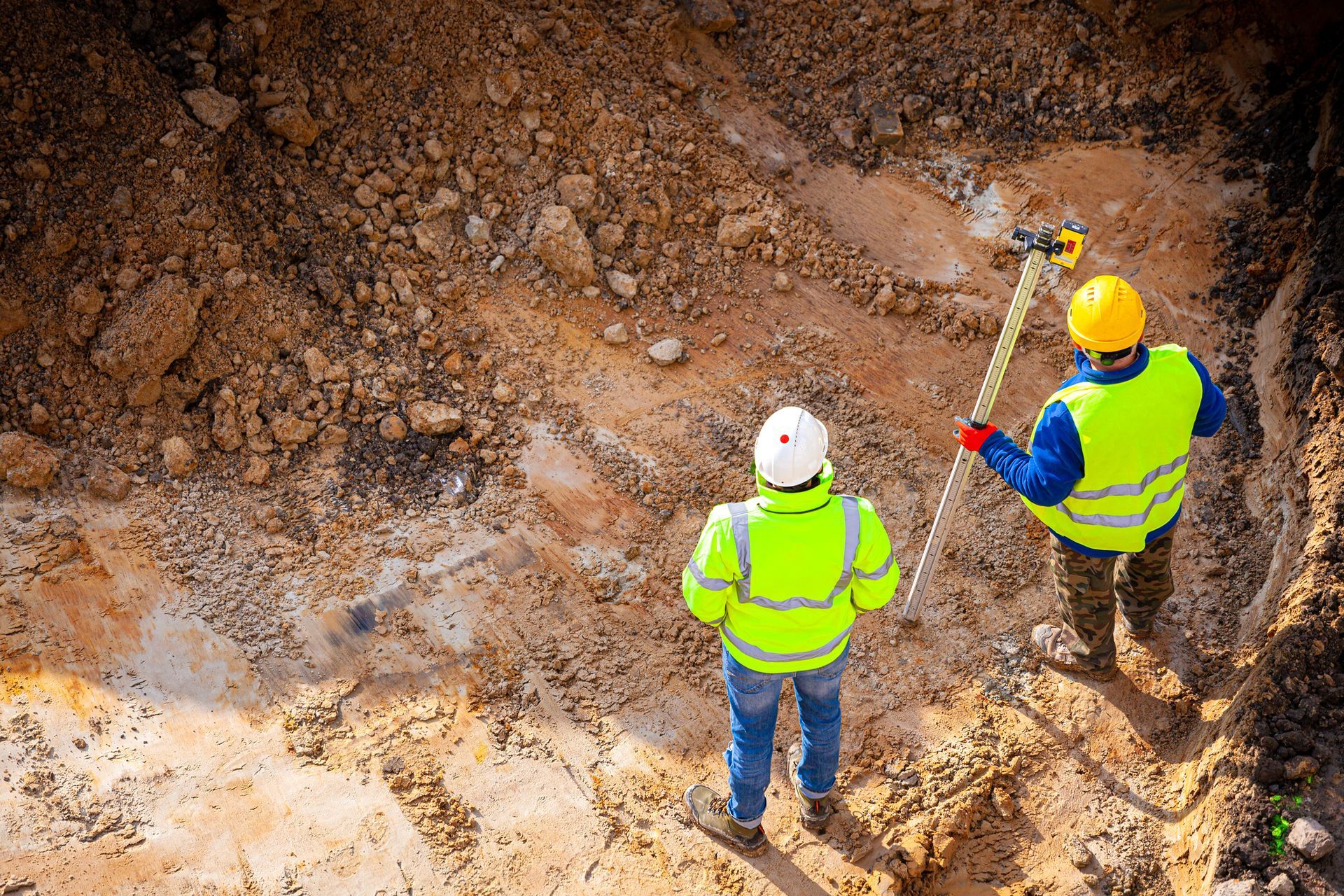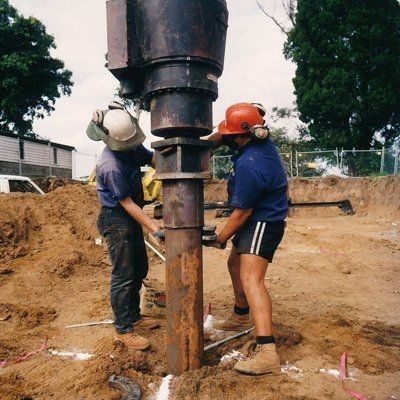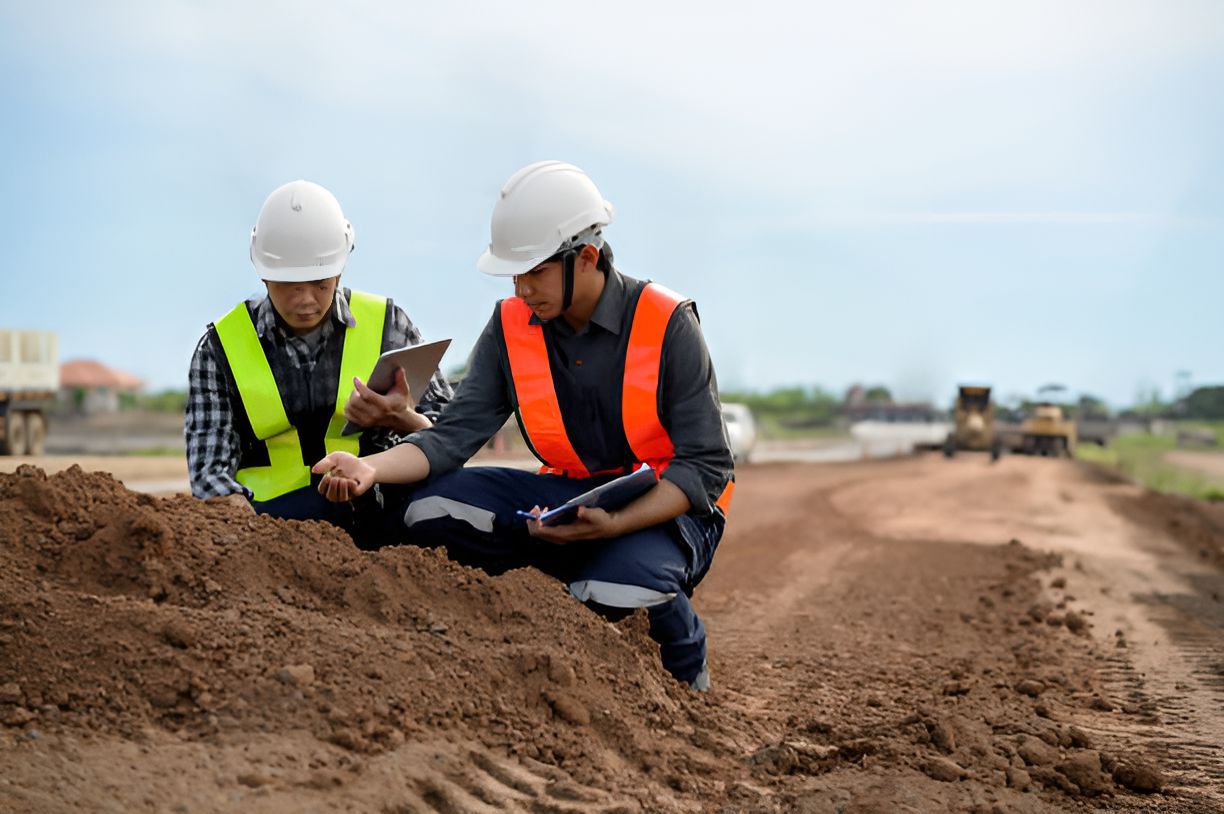What Kind of Soil Testing Does Your Brisbane Site Need?
When it comes to construction, the success of your project starts from the ground up—literally. That’s why soil testing in Brisbane is a critical first step for any development. Whether you're a property developer, civil engineer, or construction manager, understanding the soil beneath your site is essential for safe, compliant, and cost-effective building.
In this article, we’ll break down the key types of engineering soil tests, their applications, and why working with a Brisbane specialist is a smart move.
Digging Deeper: What Is Soil Testing?

Soil testing is the process of analysing the physical and engineering properties of soil to determine its suitability for construction. It’s like giving your site a health check before building begins. These tests reveal how the ground will behave under pressure, how it handles water, and whether it can support the weight of your structure. In Brisbane, where soil conditions can vary dramatically from one suburb to the next, soil testing is essential for designing safe, stable, and compliant foundations.
Why Soil Testing Is Crucial in Brisbane
Brisbane’s varied geology includes everything from reactive clay soils to sandy subgrades and rocky outcrops. These conditions can significantly impact the design and stability of your structures. Engineering soil testing helps you:
- Assess load-bearing capacity.
- Design appropriate foundations.
- Prevent future structural issues.
- Comply with local council and Australian standards.
Without proper testing, you risk costly delays, structural failures, or non-compliance with building codes.
Key Types of Engineering Soil Tests
Understanding the different types of soil tests can help you determine what your site needs. Here are the most common and critical tests used in Brisbane construction projects:
Compaction Testing
Compaction testing determines how densely soil particles are packed. Proper compaction is essential for supporting structures and preventing settlement.
Why it matters: Poor compaction can lead to uneven foundations and long-term structural damage.
Who needs it: Builders and contractors preparing pads, roads, or embankments.
California Bearing Ratio (CBR) Testing
CBR testing measures the strength of subgrade soil and its ability to support roadways and pavements.
Why it matters: It informs pavement thickness and material selection.
Who needs it: Civil engineers and developers working on roads, driveways, and car parks.
Permeability Testing
This test evaluates how quickly water can pass through soil, which is vital for drainage and stormwater management.
Why it matters: Prevents waterlogging and foundation damage.
Who needs it: Architects and engineers designing basements, retaining walls, or stormwater systems.
Shear Strength Testing
Shear strength tests assess the soil’s resistance to sliding or collapsing under load.
Why it matters: Critical for slope stability and retaining wall design.
Who needs it: Geotechnical engineers and developers working on sloped or elevated sites.
Atterberg Limits Testing
This test determines the plasticity and moisture sensitivity of fine-grained soils.
Why it matters: Helps classify soil types and predict behaviour under varying moisture conditions.
Who needs it: Designers and engineers working with clay-rich or reactive soils.
Who Benefits from Soil Testing in Brisbane?
Soil testing is not just a regulatory requirement—it’s a strategic advantage. Here’s who benefits most:
- Civil Engineers: Gain accurate data for designing safe and efficient infrastructure.
- Architects: Ensure their designs are grounded in reliable geotechnical data.
- Builders: Avoid costly delays and rework by understanding site conditions upfront.
- Developers: Make informed decisions about land acquisition and project feasibility.
Whether you're building a residential estate, commercial complex, or infrastructure project, soil testing provides the insights needed to move forward with confidence.
How to Know What Tests Your Site Needs
The right combination of tests depends on several factors:
1. Project Type: Residential, commercial, or infrastructure
2. Site Conditions: Soil type, slope, water table
3. Design Requirements: Foundation type, load-bearing needs, drainage plans
A geotechnical consultant can assess your site and recommend a tailored testing plan. This ensures you only pay for what you need—no more, no less. It also helps avoid over-engineering, which can inflate costs unnecessarily.
Why Choose a Brisbane Soil Testing Specialist?
Working with a local expert like East Coast Group of Companies offers several advantages:
- Local Knowledge: Familiarity with Brisbane’s unique soil profiles and council requirements.
- Precision Testing: Advanced equipment and methodologies tailored to engineering needs.
- Regulatory Compliance: All tests meet Australian Standards and local building codes.
- Fast Turnaround: Efficient service that keeps your project on schedule.
East Coast Group of Companies’s focus is exclusively on engineering soil testing, ensuring that every test is relevant to construction, earthworks, and geotechnical design. Our team understands the specific challenges of Brisbane’s terrain and delivers results that support safe, sustainable development.
Ready to Book Soil Testing in Brisbane?
If you're planning a construction project in Brisbane, don’t leave your soil testing to chance. East Coast Group of Companies offers expert geotechnical services tailored to the needs of builders, developers, and engineers across the region. With a focus on precision, compliance, and fast turnaround.
Contact us today on 07 3713 4900 to discuss your site and get a quote for professional soil testing in Brisbane. Your foundation starts here.



